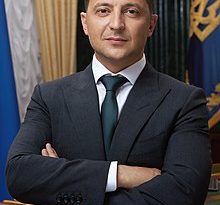Richard Hickmet – 1986 Speech on the Roskill Report
Below is the text of the speech made by Richard Hickmet, the then Conservative MP for Glanford and Scunthorpe, in the House of Commons on 13 February 1986.
If the proposals in the report are adopted, they will represent a fundamental overhaul of court room procedure designed to improve investigation, preparation and presentation of fraud cases. Issues will be more readily identified through the pre-trial review procedure. Presentation of cases will be clearer and more easy to understand and rules of evidence will be modernised and made more effective. Trials will be shorter and will come to the Crown court more quickly.
However, I have grave misgivings about the recommendations about the jury system. Jurors in all criminal cases should be able to read, write and to be numerate, let alone speak English. That proposition is so self-evident that no justification is needed. However, it is a remarkable thing that in fraud cases it is not unusual when the jury is empanelled to discover that some jurors cannot read.
Apart from the welcome recommendations on the literacy and numeracy of jurors, the report contains a detailed attack on the jury system. It attacks not only the challenging of jurors by counsel, but the hearing of complex fraud trials by juries and other general matters. Perhaps the system of challenging juries has been abused. It is not unusual for counsel to give the impression that they are challenging jurors simply to obtain a jury that is weighted more towards the acquittal of the defendant than a just verdict.
The report makes a comprehensive attack on the jury system and then seeks to say that, for the reasons set out in the report and because complex fraud trials are difficult for jurors to follow, trials which fall within certain guidelines should no longer be tried by judge and jury, only by judge and two lay assessors in the form of a fraud trials tribunal. We should welcome the fact that Mr. Walter Merricks was a member of the commission and produced his minority report.
Lord Justice Roskill said that trial by a jury selected at random is a major contributing factor in preventing fraud cases from being brought to trial. He said that the difficulty of presenting a complex case often results in a decision to opt for a less serious charge. There is no evidence for those two propositions. There is no evidence to show that a jury cannot understand a complex financial fraud case if it does not know the background, let alone the dishonest elements.
The minority report shows that, in 1983, of the 179 cases referred to the fraud division of the Director of Public Prosecutions for a decision on prosecution, only one case was not prosecuted on the grounds of complexity. That occurred on the advice of independent counsel and was an intellectual property case. Of the yearly average of 10 long fraud cases tried at the Old Bailey between 1979 and 1983, almost none was a complex fraud case that would be covered by the guidelines. There were carbon paper frauds, Spanish villa frauds and estate agent frauds, none of which could be defined as complex fraud cases.
The thrust of the Commission’s recommendations is to reform procedure, presentation and rules of evidence so that that type of case can be understood by a jury. It is illogical to make those recommendations, and then to say, “But the jury system in those cases should be removed in any event.”
We are told that defendants are no longer tried by juries selected at random because of the exclusions and that, accordingly, those who fill the jury box are not a true cross-section of the public. It is my impression that the vast majority of people are not doctors, Members of Parliament, policemen or clergymen. The vast number of people who enter jury boxes represent society as a whole.
The report also argues that, because the vast majority of legal cases in England and Wales are heard by skilled people, whether in the magistrates courts, county courts, Queen’s Bench courts or even in front of the 60 specialist tribunals, including those on immigration and social benefits, it is sentimental or illogical to retain jury trials in the Crown court. That is an extraordinary proposition. How many of those tribunals have the power to send a man to prison for life or, indeed, for more than one year? Not one. How many of those tribunals, with the exception of magistrates courts, have the power to find a man guilty of a criminal offence? Not one. How many defendants at the magistrates courts, when given the choice, opt for trial before the magistrates court rather than trial by jury? That represents many hundreds of thousands of cases each year.
The report makes serious and damaging attacks on juries. It is essential, as Mr. Merricks said in his minority report, that the general public, as represented by the jury system and the press, should be able to understand complex fraud cases. The challenge to the criminal justice system must be to make such cases understandable to the general public and the press. No man should be sent to prison for a period of up to life imprisonment without being tried by a jury. As Mr. Merricks said powerfully, why should a man have the right to trial by jury because he commits an armed robbery with a sawn-off shotgun and steals £1 million, whereas if he used a computer to carry out a complex fraud, that right could be removed? I welcome the report’s recommendations about the investigation and presentation of cases but I hope that my right hon. Friend will reject the suggestion that jury trials in those case should be removed.

